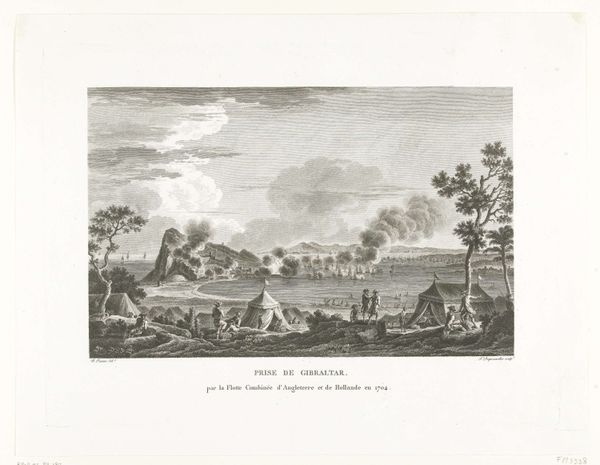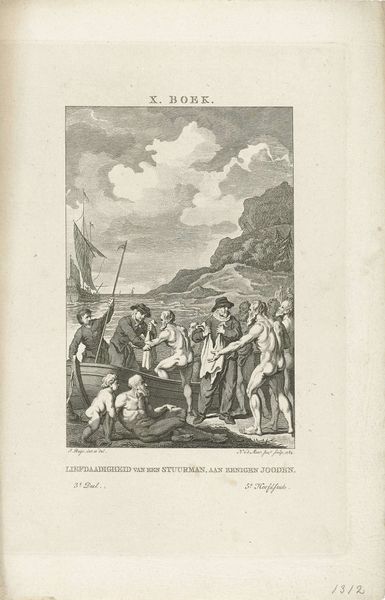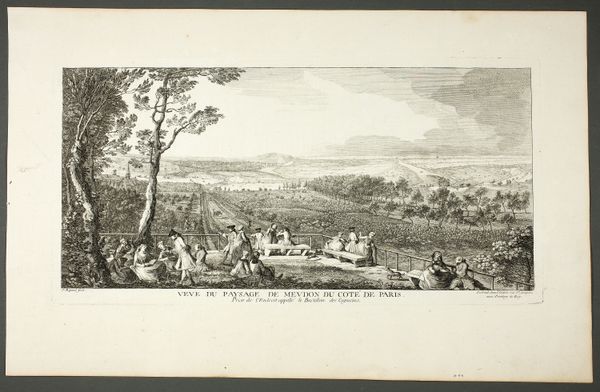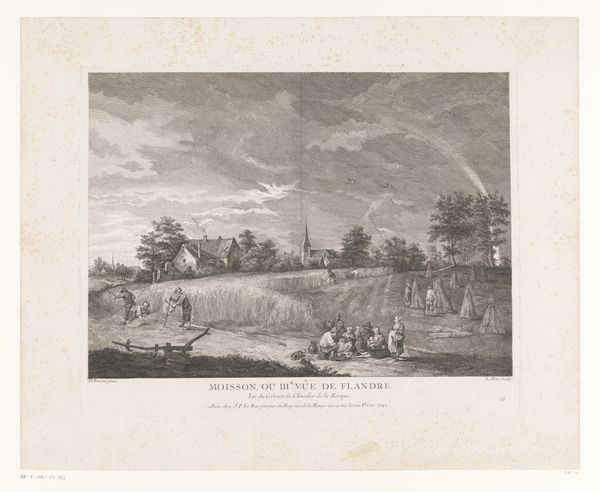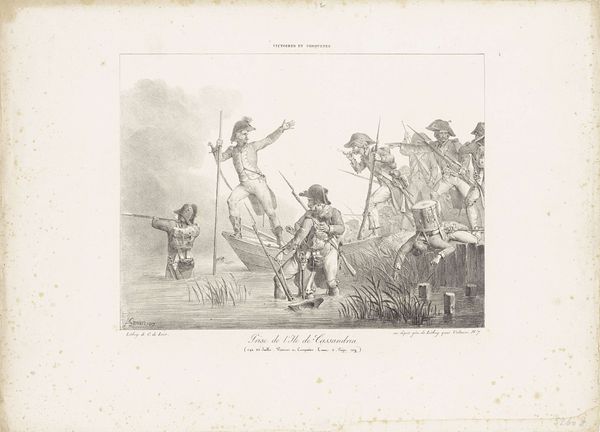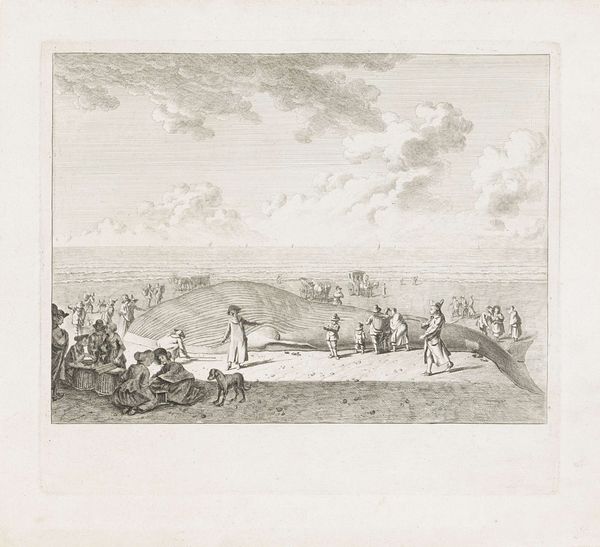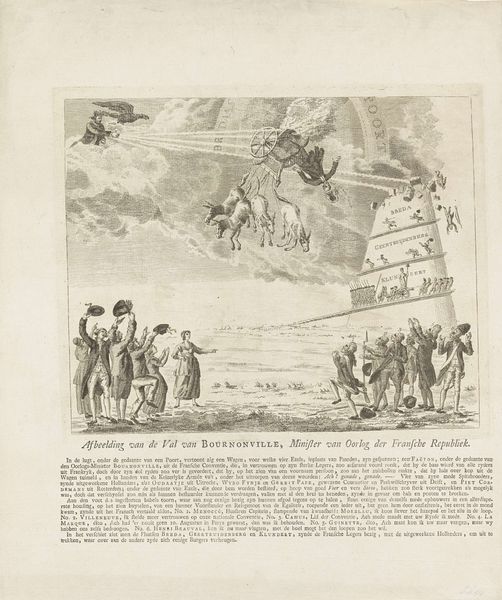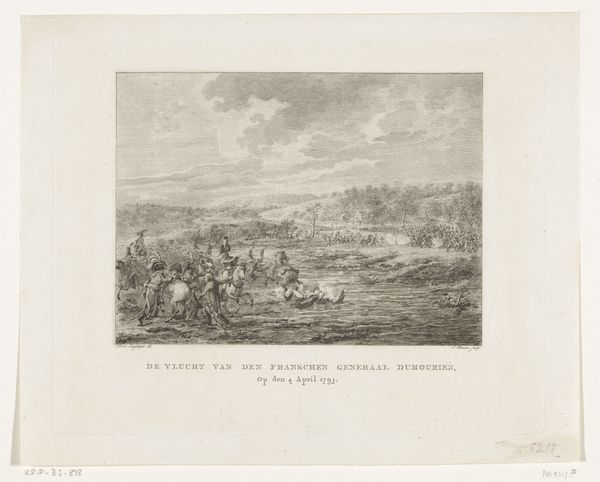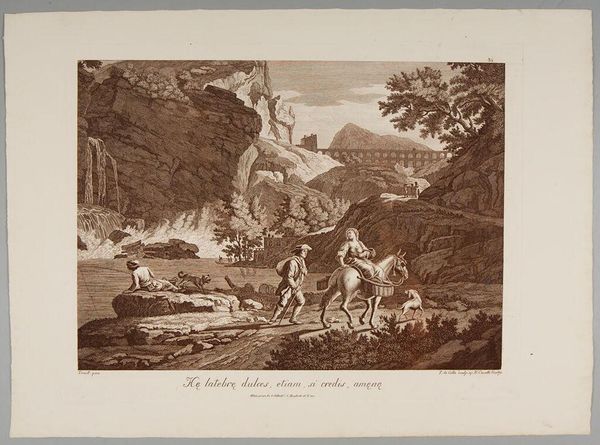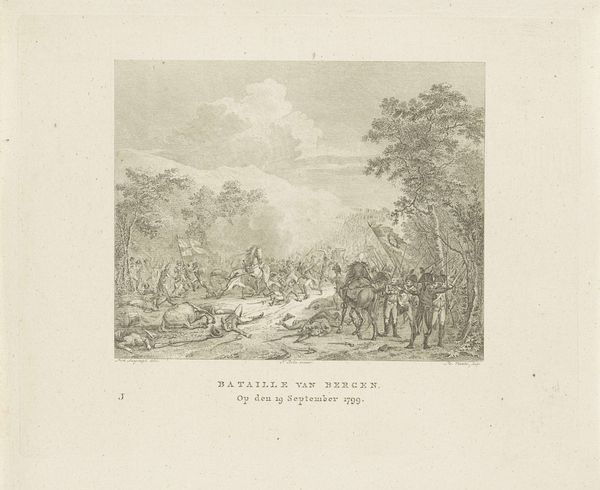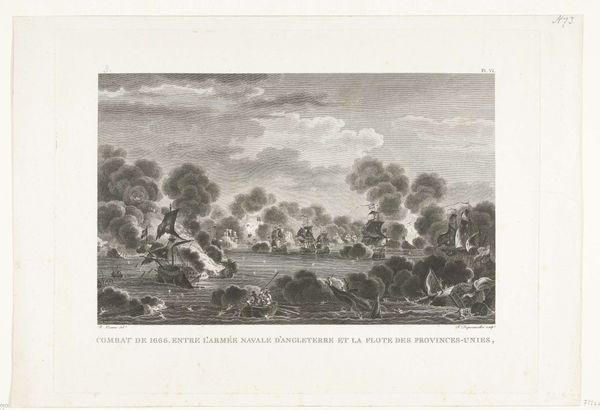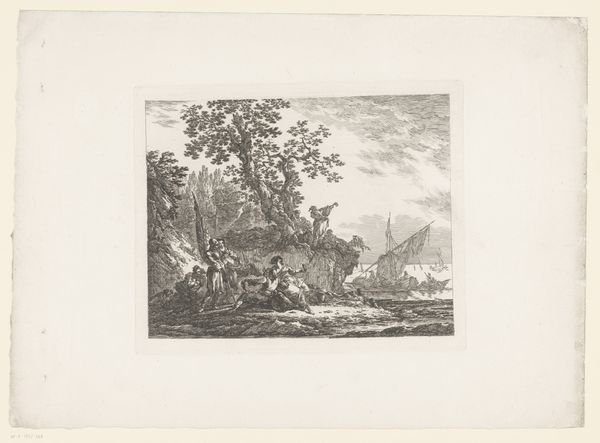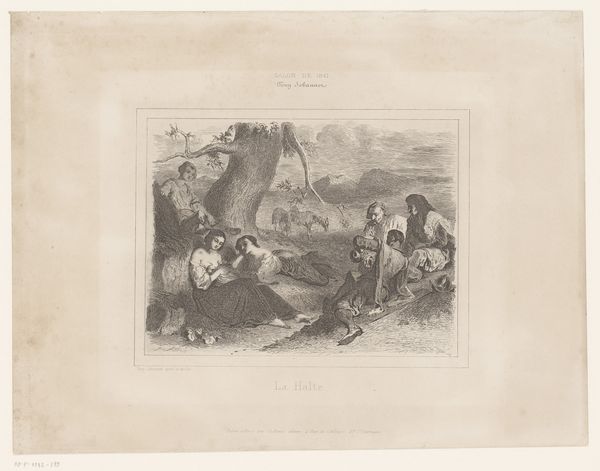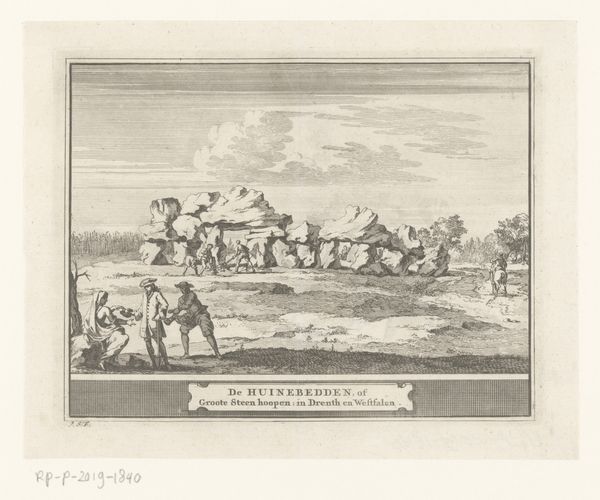
print, engraving
#
ink paper printed
# print
#
old engraving style
#
landscape
#
orientalism
#
genre-painting
#
history-painting
#
engraving
Dimensions: height 222 mm, width 266 mm
Copyright: Rijks Museum: Open Domain
This print, made by Cornelis Brouwer in the late 1700s, depicts the cremation of the King of Pegu. The image is an engraving, a printmaking technique where lines are incised into a metal plate, which then holds ink and transfers the image onto paper. The fine, precise lines visible here are characteristic of this process. Engraving was a skilled craft, demanding meticulous labor. The engraver’s task was to translate the scene into a language of line, using hatching and cross-hatching to create tone and texture. In Brouwer’s time, prints like these were often made to document far-off lands and customs for a European audience. There is a colonial dimension here, in that this is an image of Myanmar rendered for a European market of consumers. The very act of capturing and reproducing this scene transforms a ritual act into a commodity. What was once a sacred ceremony becomes a commercial product, mediated by the artist’s hand, the engraver’s skill, and the mechanisms of trade.
Comments
No comments
Be the first to comment and join the conversation on the ultimate creative platform.
